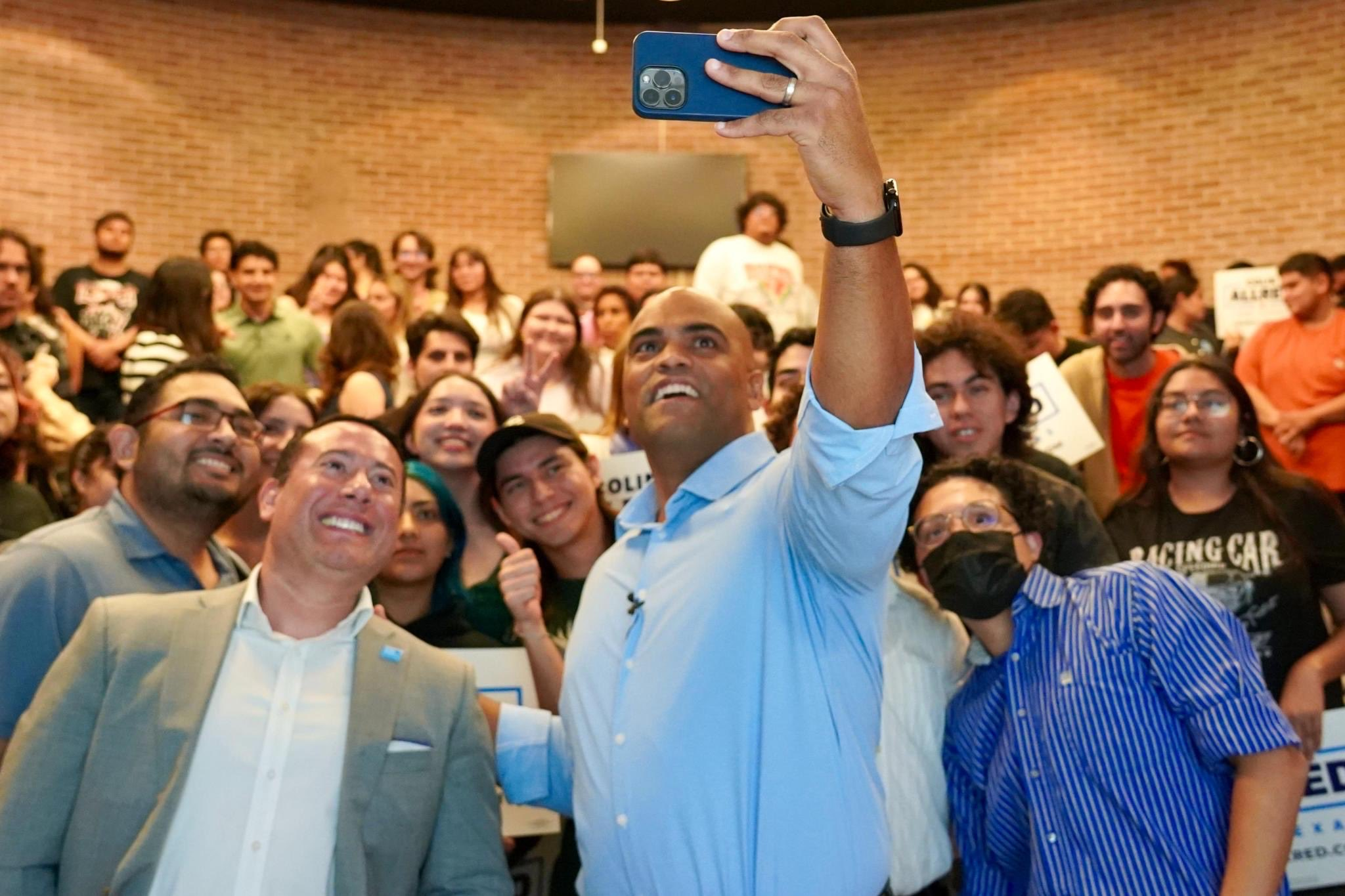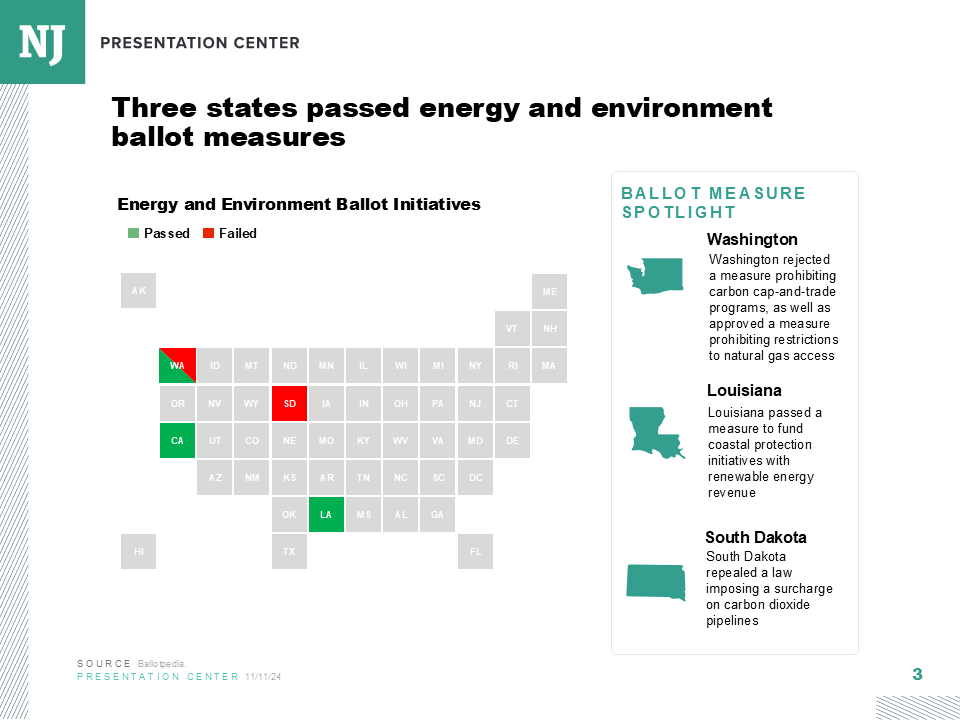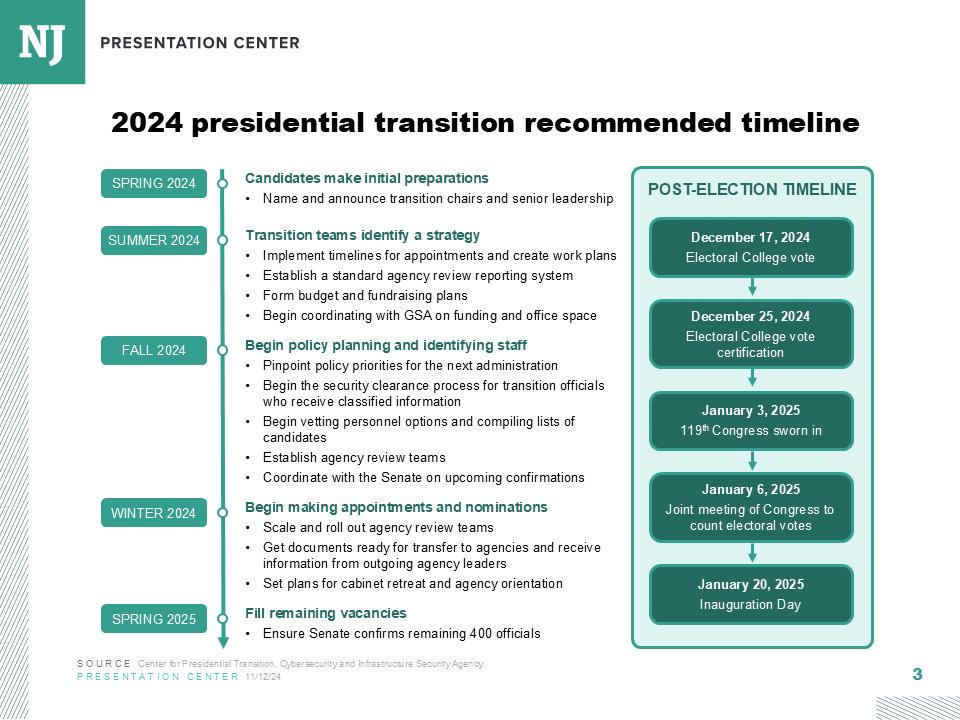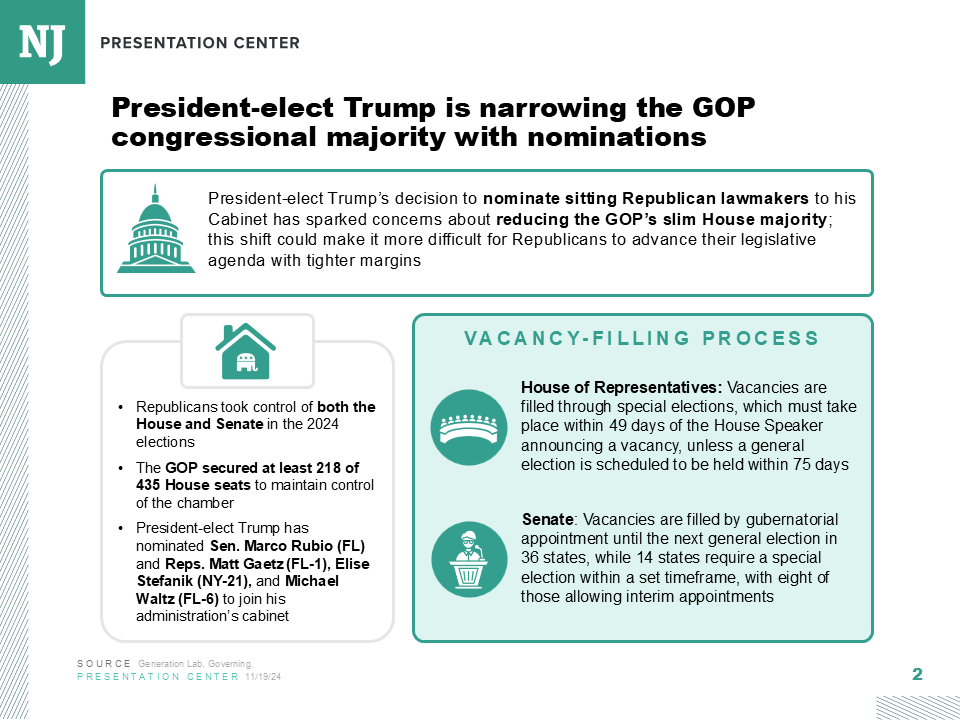PHARR, Texas—It was homecoming night for hometown PSJA North Early College High School, and they’d just gone into halftime with a 28-14 lead against Harlingen High School South after returning an interception for a touchdown with nine seconds left in the half.
The team was riding high heading into the locker room, but there was still work to be done. PSJA North players, adorning their home blacks, caught their breath, refreshed on water, and lined the perimeter of the locker room as they awaited the second-half game plan from their guest, commanding the center of the cream-colored room. The team trained on Colin Allred, the hulking, 6-foot 1-inch former NFL linebacker, as he attempted to rally the troops for another half of football.
Here, Allred was in his element.
“The second half—dominate. This is what you’ve been working for, right?” Allred said.
“Yes, sir!” the kids responded in unison.
“The first half is the easy part,” Allred continued.
The speech was indicative of the former congressman’s game plan for his second try at a Senate seat. Allred wants another crack at flipping Texas blue for the first time since 1988. To do that, he’s pulling from the same playbook that led to an outsized success in the Rio Grande Valley last year as other Democrats struggled in the region.
The former NFL linebacker performed well in South Texas in his 9-point loss to Republican Sen. Ted Cruz. He outran former Vice President Kamala Harris by 8 points in the Rio Grande Valley, as she lost the state by 14 points. Where Harris lost every county in the Valley, Allred won three out of four.
“The second half is where it comes back to your fundamentals and sticking to your training, and all the work you’ve done before comes into play,” Allred told National Journal when asked about whether the halftime speech was analogous to his campaign. “A lot of times games can be lost in the second half.”
Earlier this month, he returned to the region for the third time since launching his second campaign in July. The region, which shifted sharply to President Trump in 2024, is ground zero for Democrats’ struggles with Latino voters during the last election. Trump lost Hispanic voters by just 3 points in 2024, and won Hispanic men by 2 points, according to Pew Research.
Some Democrats aren’t ready to give up on the region—which still presents fertile ground for the party, according to an analysis by Texas-based Democratic strategist Bert Santibañez, who has worked for an array of local candidates such as San Antonio Mayor Gina Ortiz Jones.
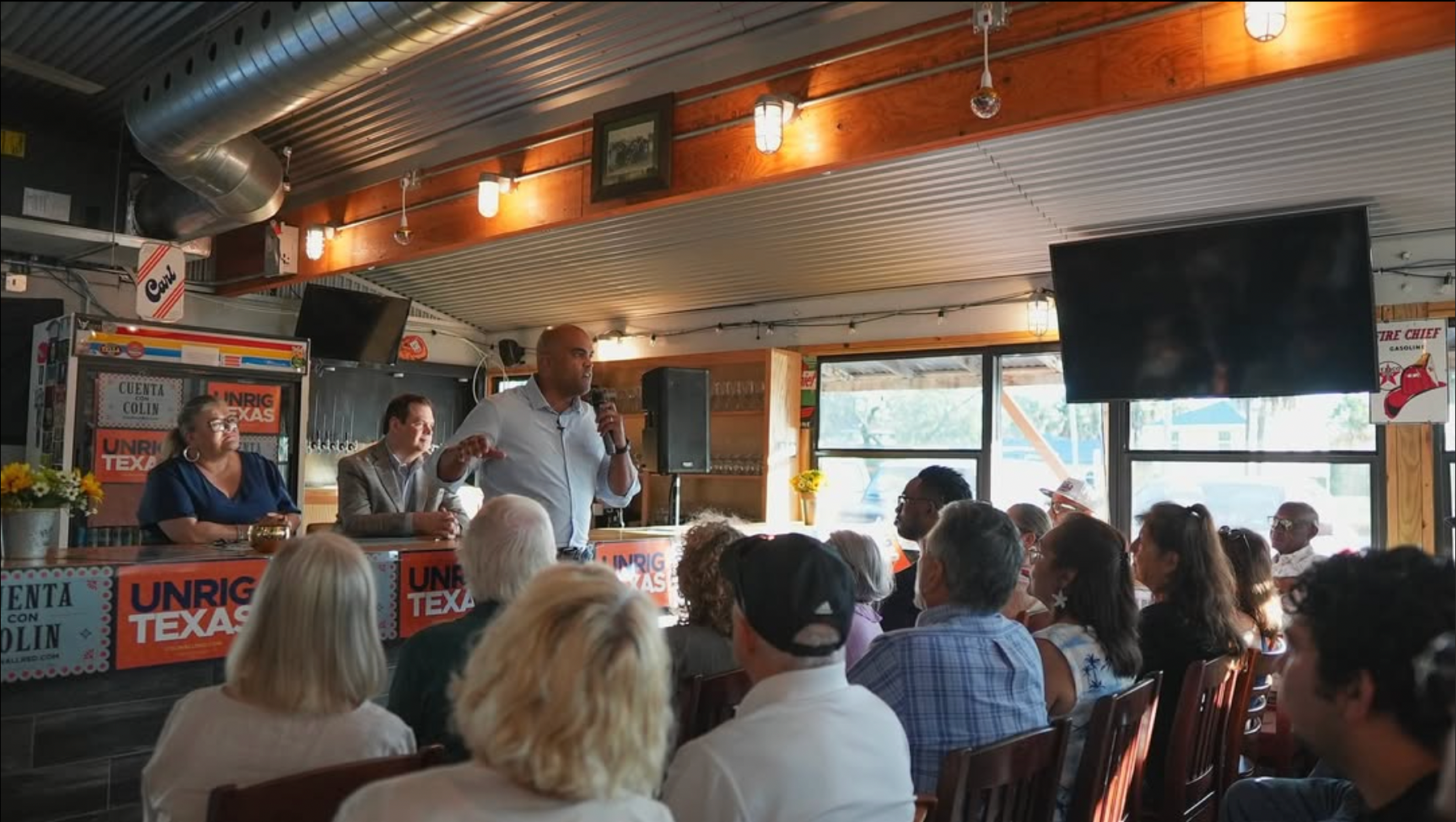
According to Santibañez, Allred won 197 border precincts—26 percent of all border precincts—that Trump also carried, many of them in the Rio Grande Valley. He called these precincts the “pivot point of statewide politics in Texas” and concluded that Allred’s moderate positions and economy-focused campaign led to his strong performance.
Longtime Democratic Rep. Henry Cuellar, who represents a border district in Laredo, concurred, telling National Journal that Allred did “very well” in South Texas because of his moderate leanings.
“Hispanics have always been, generally speaking, conservative. I mean, it didn’t just happen,” Cuellar said of the region’s shifts. “It’s been conservative.”
Allred is a familiar face in the region. His mom grew up in Brownsville, a point he leaned into at his campaign stops in Edinburg, McAllen, and Brownsville, and something not lost on his supporters in the area.
“He’s connected to Brownsville,” said Luciano Garza, a Democratic National Committee Texas delegate from Weslaco, Texas. “He would come all the time to visit his grandma before he went off to Baylor.”
But even as Allred runs in what could become a contentious primary against state Rep. James Talarico, an Austin representative who’s garnered plenty of national attention, the looming matchup did not dominate discussion at the events.
Just one attendee asked about the differences between him and Talarico.
“What I always do in primaries and elections is I try to make sure the folks know who I am, why I’m running, what I’m running on, and, in doing that, I draw my distinctions,” Allred said. “We’ve developed a relationship with working people, but now I think we have to drive home [what] we’re going to do to help them … particularly in the Valley, where we ran way ahead of the presidential ticket.”
Early in the day, before Friday night lights, Allred made a pit stop at the University of Texas Rio Grande Valley, where he spoke to the university’s College Democrats chapter.
Roel Garza, a student at the school, told National Journal he was leaning toward supporting Talarico in the primary. Garza, who supported Allred in his campaign last year, said he was drawn to Talarico for his Christianity and his platform of “unity.”
However, after hearing from Allred at the town hall, Garza said he was not so sure.
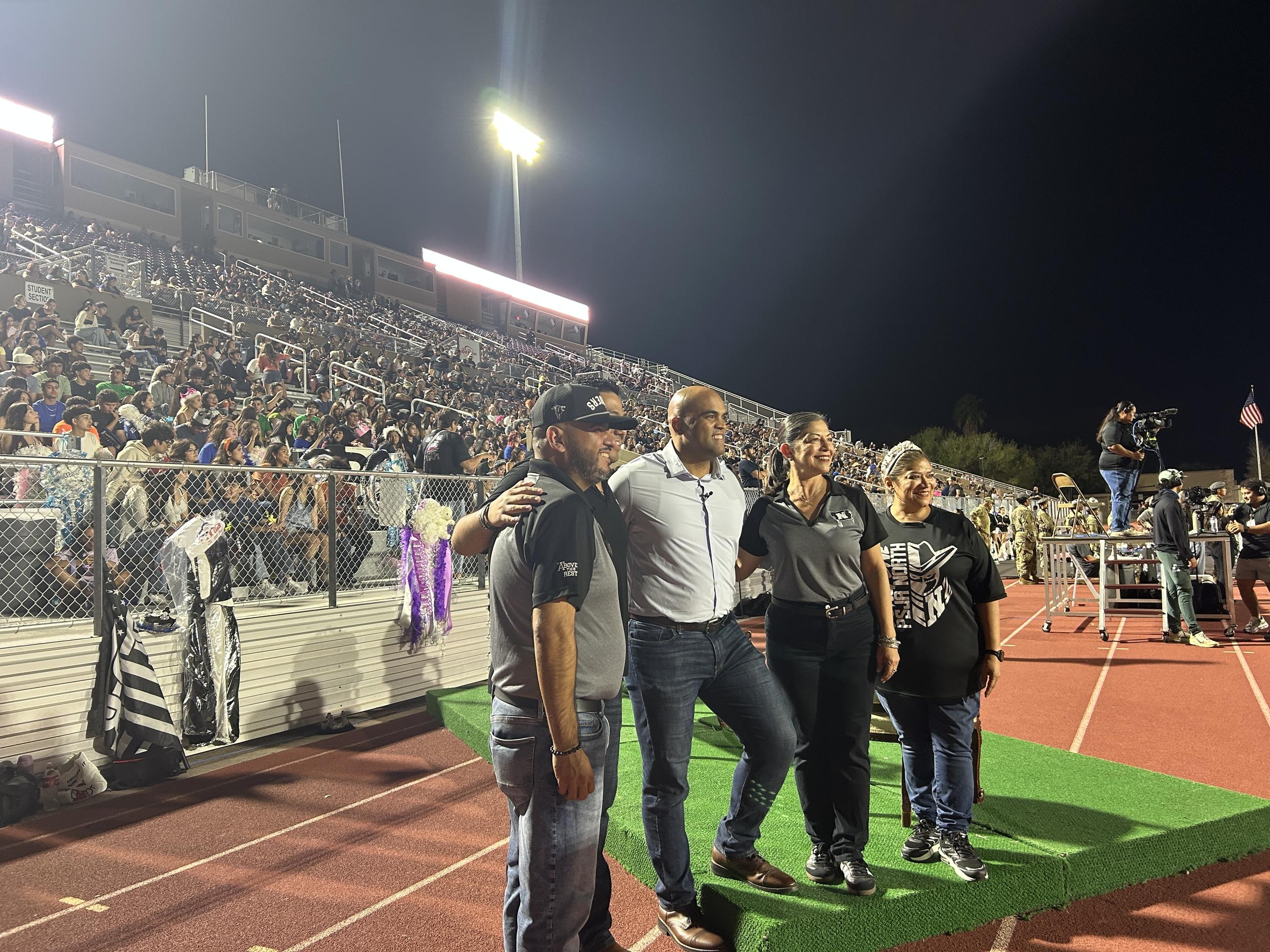
“What struck me was that he talked about something that really affects us,” said Garza, referring to the drought and water issues that have plagued the Valley. “He knew solutions to it. … I honestly went into this [town hall] thinking that he just had ideas but no solutions.”
He said he’ll need to hear more from the candidates before making a decision.
“I’m definitely conflicted. I want to hear them debate in person.”
Whoever emerges from the Democratic primary will square off against the winner of what’s already a vitriolic affair on the Republican side. Sen. John Cornyn faces a challenge from Texas Attorney General Ken Paxton, and polling has shown a neck-and-neck contest. Leaders in Washington have coalesced around the incumbent and argued that Paxton could present a drag not only to the statewide ticket, but in congressional districts around the state.
Allred told supporters he’s ready to square up against either of them.
And his supporters are hoping to finally deliver a statewide win for Democrats in the Lone Star State.
“I’m all in for Col-in,” Luciano Garza said.

